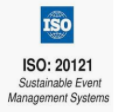Conference Interpretation Training
Conference interpretation training is a specialized program designed to equip individuals with the skills and knowledge necessary to become professional conference interpreters. With the rise in globalization and international events, the demand for skilled interpreters has grown significantly in recent years. Globibo, a leading provider of language and communication services, offers a comprehensive conference interpretation training program that prepares individuals for the challenges of the profession.
Our conference interpretation training program covers a wide range of topics, including interpreting techniques, terminology management, memory development, and public speaking skills. The program is led by our experienced instructors, who have a deep understanding of the interpretation industry and can provide invaluable guidance and feedback to students.
We want to create interpreters through our training program who can effectively communicate across languages, cultures, and career fields. Through a combination of theoretical knowledge and practical experience, including live interpretation exercises and simulated interpreting scenarios, students learn to master the art of interpreting. Additionally, a lot of conference accreditation programs demand that conference interpreters attain a certain level of education and training.
Overall, our conference interpretation training program is a rigorous and rewarding program that prepares students for a successful career as professional interpreters. With our expertise and commitment to quality, we are a trusted partner for anyone looking to pursue a career in conference interpretation.
Essential skills for conference interpreters
A variety of fundamental skills are necessary for conference interpretation to be successful because it is a challenging and complex profession. The following are some of the crucial abilities that conference interpreters need to have:
- Language proficiency: Conference interpreters must have a high level of proficiency in their working languages to be able to accurately interpret and convey the message across language barriers.
- Listening skills: Interpreters must be active listeners, able to understand and process spoken words quickly and accurately.
- Memory: Interpreters must have excellent short-term memory skills to be able to accurately interpret what has been said a few seconds earlier.
- Analytical skills: Interpreters must be able to analyze and interpret complex ideas and concepts accurately, and in real time.
- Cultural competence: Interpreters must have a deep understanding of the cultural differences between the source and target languages to accurately convey the meaning and intention of the speaker.
- Public speaking skills: Interpreters must have excellent public speaking skills to deliver the interpretation effectively and engage the audience.
- Professionalism: Interpreters must maintain a high level of professionalism at all times, including confidentiality, impartiality, and ethical conduct.
By mastering these skills, conference interpreters can deliver high-quality interpretation services that meet the needs of their clients and stakeholders.
Conference interpreters' emotional health is as important to their ability to perform their work well and avoid burnout as their technical proficiency. We at Globibo can assist you in becoming a successful conference interpreter with our conference interpretation training programs offered by our skilled team of conference interpreters.
Types of interpretation: Simultaneous vs. Consecutive
When it comes to interpretation, there are two main types: simultaneous and consecutive interpretation. Here's a brief overview of each type:
- Simultaneous interpretation: In simultaneous interpretation, the interpreter listens to the speaker and translates the message into the target language in real time. The interpretation is delivered almost simultaneously with the speaker's words. Simultaneous interpretation is commonly used in large conferences, meetings, and events where participants require immediate access to information in multiple languages. Interpreters typically use specialized equipment, such as headphones and microphones, to deliver their interpretation in real time.
- Consecutive interpretation: In consecutive interpretation, the interpreter listens to the speaker and takes notes before delivering the interpretation in the target language. The interpreter waits for the speaker to pause before delivering their interpretation. Consecutive interpretation is often used in smaller settings, such as business meetings, negotiations, and court hearings. It is also used when interpreting for one or a few people who need interpretation services.
Both kinds of interpretation call for highly trained interpreters who can accurately convey the message while taking into account linguistic and cultural differences. There may be instances where one interpretation is preferable to another depending on the circumstances. Both types of interpretation must be familiar to interpreters, and they must also be flexible enough to work in a variety of settings.
Work opportunities for conference interpreters
The field of conference interpretation is highly specialized, in high demand, and offers a variety of job opportunities. Instances of places where conference interpreters might find employment are as follows:
- International organizations: Organizations such as the United Nations, World Bank, and World Health Organization employ interpreters to support their multilingual communication needs.
- Government agencies: National and regional governments often require interpreters for international meetings, negotiations, and conferences.
- Conferences and events: Interpreters may be hired by conference organizers or event planners to provide interpretation services for keynote speakers, panel discussions, and other sessions.
- Business and corporate settings: Many multinational corporations require interpreters to facilitate communication with international partners, clients, and customers.
- Legal and judicial settings: Interpreters are often required in courtrooms, legal depositions, and other legal settings to ensure accurate interpretation and communication.
- Media and broadcasting: Interpreters may be employed by news organizations or broadcasters to provide simultaneous interpretation for live broadcasts or interviews.
The majority of industries and settings offer job opportunities for conference interpreters. For technical conference interpretation as well as across a range of industries, our team of interpreters undergoes rigorous training and testing to ensure that we can provide accurate and efficient interpretation services. Given the growing need for multilingual communication in today's globalized world, conference interpreters are crucial to facilitating effective communication between individuals and groups from various linguistic and cultural backgrounds. Using medical conference interpretation, we can also help you overcome language barriers.
Benefits of Conference Interpretation Training
A great deal of practice and training is needed to become proficient in conference interpretation, which is a highly specialized profession. Some of the main advantages of conference interpretation training are as follows:
- Develops language skills: Conference interpretation training involves intensive language study and practice, which helps to improve the interpreter's language skills in both their source and target languages.
- Enhances interpreting skills: Through training and practice, interpreters learn and develop specialized techniques and strategies for simultaneous and consecutive interpreting.
- Builds cultural competence: Interpreters learn about the cultures and customs of the languages they are interpreting, which helps them to understand and accurately convey the meaning of the speaker's message.
- Improves cognitive abilities: Conference interpretation training requires a high level of concentration, memory, and analytical thinking, which can help to improve cognitive abilities and brain function.
- Increases job opportunities: With specialized training and certification, interpreters can increase their job opportunities and earning potential in a range of industries and settings.
- Promotes professionalism: Conference interpretation training emphasizes the importance of professionalism, ethics, and best practices in interpreting, which helps to maintain high standards in the profession.
Conference interpretation training equips interpreters with the expertise, abilities, and practice required to provide high-quality interpretation services that satisfy the needs of their customers and stakeholders.
Conference interpretation training is essential for anyone seeking to become a professional interpreter in today's globalized world. At Globibo, we offer comprehensive conference interpretation services that can help aspiring interpreters build the skills and knowledge they need to succeed in this exciting and rewarding profession. Get in touch with us right away to find out more about our training courses and how we can support you in achieving your professional objectives.
FAQs
Q1. What is conference interpretation training?
Ans: Conference interpretation training is a program designed to develop and enhance the skills required to work as a professional conference interpreter. It involves intensive language study, the development of interpreting skills, and practice in both consecutive and simultaneous interpreting.
Q2. Who can benefit from conference interpretation training?
Ans: Anyone interested in becoming a professional conference interpreter, including language students, working interpreters seeking to enhance their skills, and professionals in related fields such as translation, international relations, or business, can benefit from conference interpretation training.
Q3. What are the entry requirements for conference interpretation training?
Ans: Entry requirements vary depending on the program and institution offering the training. Typically, candidates need to demonstrate advanced proficiency in their source and target languages, as well as strong cognitive and communication skills.
Q4. How long does conference interpretation training take?
Ans: The duration of conference interpretation training programs varies depending on the level of training and the institution offering the program. Typically, programs range from several weeks to several months, with longer programs offering more extensive training and practice
Q5. What topics are covered in conference interpretation training?
Ans: Conference interpretation training covers a range of topics, including language proficiency development, interpreting techniques, cognitive and memory skills development, cultural competence, ethics and professionalism, and practical training through simulations and real-life practice sessions.
Q6. What are the career prospects for conference interpreters?
Ans. Conference interpreters are in high demand in a range of industries, including international organizations, government agencies, business and corporate settings, legal and judicial settings, and media and broadcasting. The career prospects for conference interpreters are generally good, with many opportunities for growth and advancement.
Quick Contact
Australia: +61 28317 3495
China: +86 21 8024 6090
France: +33 6 1302 2599
Germany: +49 (030) 8093 5151
Hong Kong: +852 5801 9962
India: +91 (11) 7127 9949
Malaysia: +603 9212 4206
Philippines: +63 28548 8254
Singapore: +65 6336 9002
Spain: +34 675 225 364
Vietnam: +84 985 611 322
UK: +44 (20) 3468 1833
US: +1 (718) 713 8593
Certification

ISO 27001 - Information Security Management System - Certificate #: CCL/ISMS/70818/GIPL

ISO 9001 - Quality Management System - Certificate #: CCL/QMS/70818/GIPL

ISO 17100 - Quality Translation Services Management System - Certificate #: CCL/QMS/70821/GIPL

ISO 20121 - Event Sustainability Management System - Certificate #: CCL/QMS/70822/GIP
Testimonials


Globibo News

Globibo Panda Run
Join 28th of March, in Singapore 8.15pm Marina Bay Sands...

Globibo Hong Kong
A new milestone was hit in September 2012 with our own office in Hong Kong.

Corporate Training Website
Our Our Globibo Corporate Training Website is finally online.

Happy New Year
Happy New Year 2013. May it bless all of us with loads of joy & success.

Language-school.sg
Our new Web site dedicated to Language Courses in Singapore goes...





